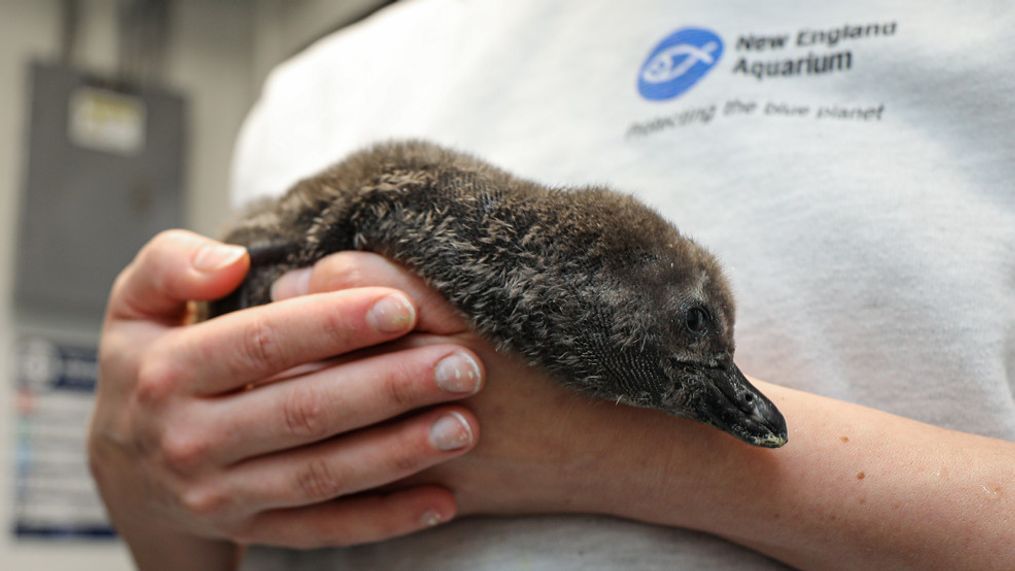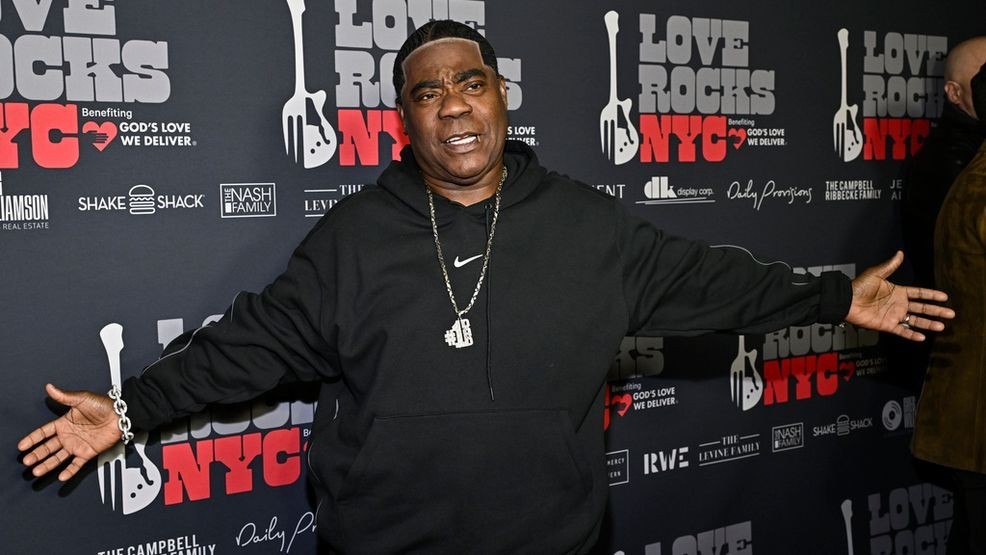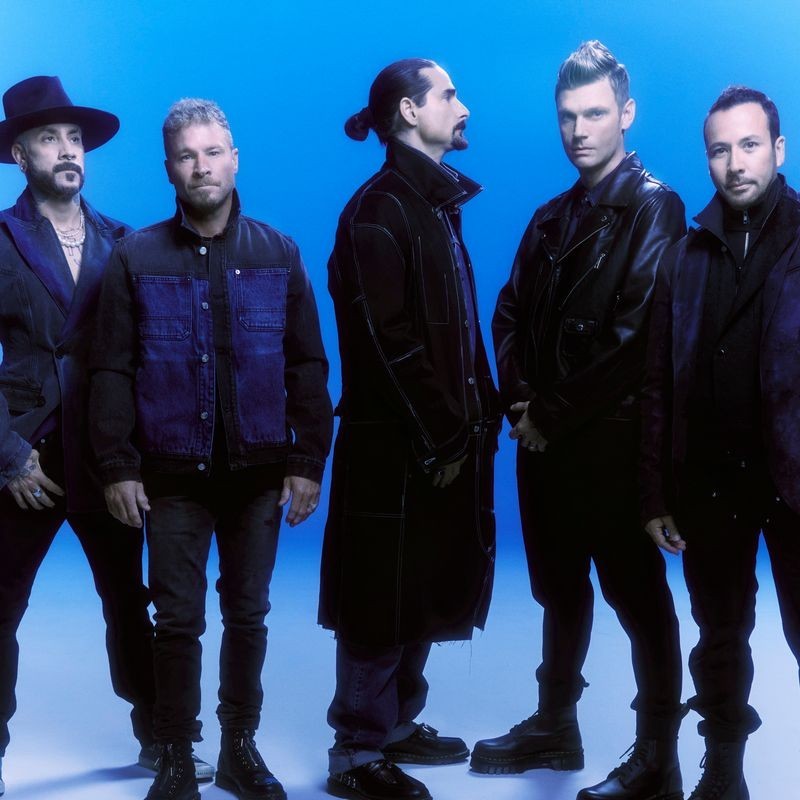VIDEO: African penguin chick - now full grown - makes debut at New England Aquarium

WASHINGTON (TND) — A baby animal has joined the family at the New England Aquarium.
Her name is Bray and she is a 3-month-old African penguin chick.
Bray, who hatched at the Aquarium on March 23, "is now fully grown and on exhibit," according to a news release.
Video shows Bray getting weighed -- she is now nearly 7 pounds, which is more than 42 times her hatch weight -- before joining the penguin colony.
The footage also shows her diving into the water, swimming, relaxing on the rocks, and getting to know her peers.
She was initially raised by her parents and trainers "behind the scenes."
“In the early stages, the parents provide most of the care, just as they would in the wild,” Senior Penguin Trainer Amanda Barr noted in the release. “As the chick grew, we started teaching her to be hand-fed by our Animal Care team so she would be ready to join the rest of the colony on exhibit.”
The release noted Bray is "now surrounded by several relatives, including great-grandmother Deco, who is the oldest penguin at the Aquarium at 41 years-old."
The Aquarium, which is in Boston, Massachusetts, noted that African penguins are an endangered species and are at risk of going extinct by 2035. That's why they participate in the African Penguin Species Survival Plan through the Association of Zoos and Aquariums.
“Every new African penguin chick is a huge win for this endangered population, so we’re overjoyed to welcome a new chick to the colony,” Barr said in the release. “The breeding effort teaches us a little more about the factors that can help us support future births, from nest temperature to genetics, and we get to share that information and play a part in the Association of Zoos and Aquariums’ efforts to save African penguins around the world.”


















